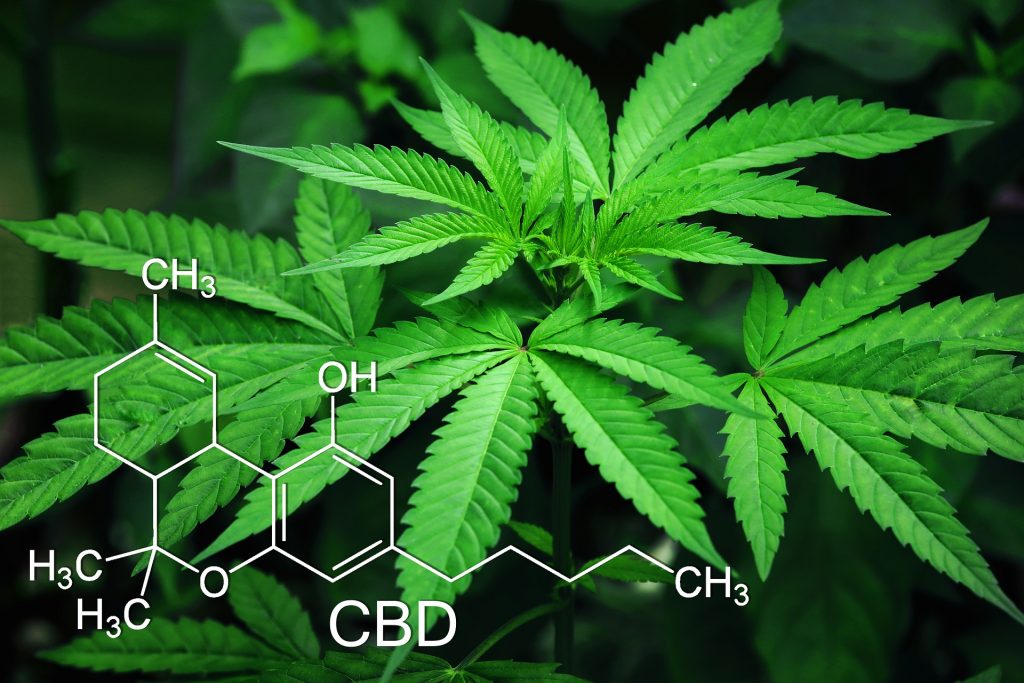Most newcomers to medical marijuana are familiar with tetrahydrocannabinol (THC), the main psychoactive compound in cannabis. But the therapeutic and medical benefits of cannabis are not all linked to this single compound.
It doesn’t take long for curious cannabis users to discover Cannabidiol (CBD), often called the non-psychoactive cousin of THC. Many cannabis products prominently display their relative concentrations of each compound – pointing users in the direction of their desired therapeutic effects.
But research on CBD is not yet as extensive as it is for THC. This, alongside the promise of enormous profits, has led more than one CBD manufacturer down the perilous path of unethical marketing.
According to a report in the Journal of the American Medical Association, researchers purchased and tested 84 different CBD products in 2017, and found alarming results:
- Almost half of tested CBD products had less CBD than advertised.
- Approximately one out of every four CBD products had more CBD than advertised.
- Two out of every ten CBD products had enough residual THC to trigger a drug test.
It’s clear that the CBD industry has a ways to go before it can truly live up to its promises. Consumers need to be aware of what distinguishes a reputable, trustworthy CBD brand from a bad one.
Wait – Aren’t All Cannabis Products Tested?
Considering how strict most states’ cannabis regulations are, it seems unbelievable that CBD manufacturers could get away with inaccurate labeling. In Massachusetts, for example, cannabis products have to pass stringent laboratory tests before hitting dispensary shelves.
Accurate cannabis testing is an important step towards creating a legitimate, long-lasting cannabis industry in the United States. CBD products that contain THC – like dry cannabis bud and most dispensary products – are accurately tested.
But CBD is not a regulated compound like THC is. That means that an unscrupulous manufacturer can get away with calling something a “CBD product” and avoid having to submit it for testing if it doesn’t contain any THC.
Patients and consumers can safely purchase CBD products from reputable dispensaries, accompanied by a valid certificate of analysis from a licensed laboratory. Patients who purchase CBD products from online vendors can’t be sure what they’re getting.
What’s The Real Difference Between CBD and THC?
On a molecular level, CBD and THC are virtually identical. They have the same atomic atomic structure: 21 carbon atoms, 30 hydrogen atoms, and two oxygen atoms.
They differ only in the placement of a single atom. You’d be forgiven for assuming that since these two compounds are so similar, they produce similar effects. On a physiological level, they are almost complete opposites of one another.
Whenever someone consumes cannabis, the physiological effects – including pain relief, anxiety relief, appetite stimulation, and euphoria – occur when compounds like THC and CBD bind to specific receptors in the body’s endocannabinoid system. Some of these receptors are located in regions of the brain responsible for cognition, memory, emotion, and motor coordination, while others are located throughout the entire body.
- THC binds directly to a receptor located in the brain, forming a bond that sends signals to the brain. When the brain processes these signals, users experience the telltale psychoactive effect of cannabis. This is the mechanism responsible for the feeling of “getting high”.
- CBD doesn’t bind to the same receptor as THC, but the tiny difference in its atomic structure can prevent THC from successfully binding. This means that CBD actually neutralizes the effect of THC while binding to different receptors located throughout the central nervous system, producing effects that don’t result in intoxication.
The unique effects that CBD has on the endocannabinoid system receptors located outside the brain are responsible for its therapeutic properties. This is how CBD helps treat insomnia without making users feel sleepy – instead of changing the user’s mental state, it works by relieving bodily stress, naturally leading to a better night’s sleep.
CBD shows promise towards treating a variety of conditions, including:
- Epilepsy
- Alzheimer’s Disease
- Parkinson’s Disease
- Anxiety
- Depression
It is also frequently used to relieve muscle pain, joint pain, migraines, and skin conditions. However, almost all of the research on CBD is new, and scientists are still studying the compound to determine exactly how it treats these conditions.
What We Don’t Know (Yet) About CBD
CBD has only recently become a subject of intense study among pharmacologists. There is a great deal of work to be done before anyone can comprehensive map out its therapeutic effects and contraindications.
This makes sense because it’s difficult to organize a rigorous, large-scale double-blind placebo-controlled clinical study for a scheduled substance. The legal and administrative frameworks under which these studies must be organized have only begun to form, at the state level, over the past few years.
While studies have shown beneficial effects in patients with the conditions listed above, the complexity of the endocannabinoid system makes it difficult to gauge whether similar results will occur in everyone. The fact is that cannabis contains 113 different cannabinoids, out of which THC and CBD are only the two best-known and studied.
Further studies into the proportional effects of cannabinoids will pave the way for more effective cannabinoid treatments. For instance, many scientists already believe that CBD and THC have to be present in varying proportions in order to maximize certain therapeutic effects. Other scientists see CBD working perfectly fine on its own, particularly for its anxiety-reducing effects.
In either case, it’s clear that the cannabis industry and the pharmacological community are racing to demonstrate solid clinical results for CBD, THC, and the 111 other cannabinoids found in marijuana. We’re committed to keeping our eye on the latest developments in the world of cannabinoid pharmacology and letting cannabis patients in Boston, Massachusetts know where the future is headed.
